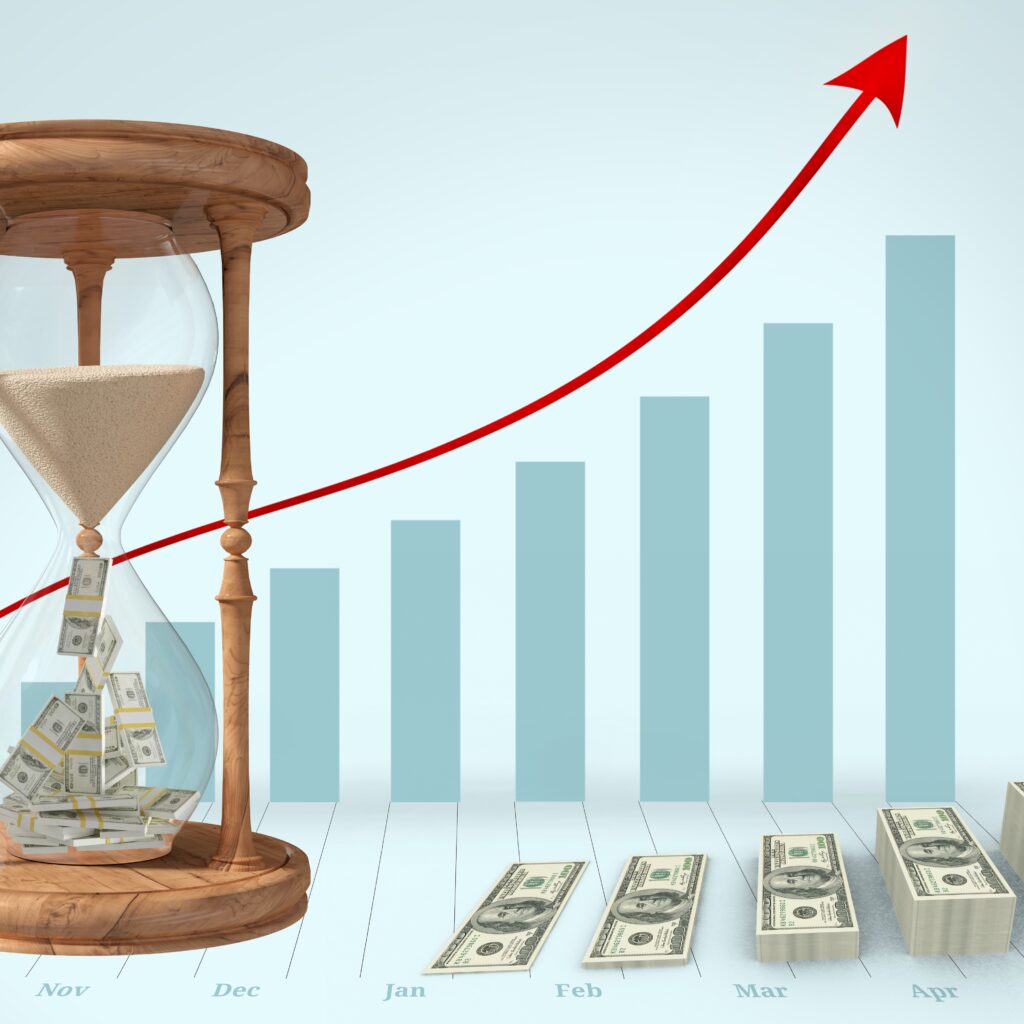In today’s dynamic financial landscape, the impact of inflation on investment decisions cannot be overstated. As investors navigate the ever-changing market conditions, understanding how inflation influences the various facets of investments is crucial for making informed choices. Let’s delve into the intricacies of inflation, its historical trends, and the strategies investors can employ to safeguard their portfolios.
Table of Contents
In the ever-evolving tapestry of the financial world, the influence of inflation on investment decisions is a thread that cannot be ignored. In this comprehensive exploration, we will unravel the multifaceted layers of inflation, its historical footprints, and the intricate dance it engages in with investment landscapes. As we embark on this journey, let us understand the complexities that investors face and the strategies they employ to navigate the impact of inflation on their portfolios.
Introduction
Defining Inflation and Its Economic Implications
Inflation, a term commonly thrown around in economic discussions, refers to the persistent increase in the general price level of goods and services within an economy over time. The implications of inflation are profound, extending far beyond price tags on everyday items. For investors, it becomes a critical factor influencing the purchasing power of money and subsequently shaping investment decisions.
The Interconnectedness of Inflation and Investment Decisions
Investment decisions are intrinsically linked to economic conditions, and inflation plays a pivotal role in this connection. Investors need to comprehend how inflation can impact the returns on their investments, making it imperative to navigate this complex relationship with wisdom and foresight.
Understanding Inflation
Delving into the Root Causes and Complex Factors
The origins of inflation are diverse, ranging from increased demand for goods and services to supply shortages or external economic shocks. Understanding these root causes is fundamental for investors seeking to anticipate and respond to inflationary pressures.
The Nuances of Different Types of Inflation
Inflation isn’t a monolithic force; rather, it comes in different forms, each with its own characteristics. From demand-pull inflation driven by excessive demand to cost-push inflation resulting from increased production costs, investors must navigate a nuanced landscape.
Historical Trends in Inflation

Tracing the Impact of Inflation on Investments Over Time
A journey through historical trends in inflation unveils the ever-changing economic landscapes that investors have navigated. Examining how inflation has influenced investments in the past provides invaluable insights into potential market behaviors in the present.
Lessons Learned from Historical Economic Landscapes
The pages of economic history are rich with lessons for investors. Studying the successes and failures of investment strategies in different inflationary periods equips today’s investors with the knowledge needed to thrive in uncertain times.
Inflation and Risk Management
Unpacking the Multifaceted Risks Posed by Inflation
Inflation brings with it a slew of risks, from eroding the real value of returns to diminishing the purchasing power of capital. Investors must identify and comprehend these risks to effectively manage them.
Crafting Comprehensive Strategies to Mitigate Inflation Risks
Mitigating inflation risks requires a comprehensive approach. From diversification across asset classes to employing inflation-protected securities, investors have an arsenal of strategies to shield their portfolios.
Inflation-Adjusted Investments
Recognizing the Significance of Real Returns in Inflationary Environments
In the quest for wealth accumulation, investors must not only focus on nominal returns but also recognize the importance of real returns. Real returns take into account the impact of inflation, ensuring that the growth in portfolio value outpaces the rising cost of living.
A Deep Dive into Assets Providing Inflation-Adjusted Returns
Certain assets, such as Treasury Inflation-Protected Securities (TIPS) and real estate, are renowned for providing returns that adjust for inflation. These serve as bulwarks against the corrosive effects of rising prices.
Impact on Different Investment Vehicles
Navigating the Complex Relationship Between Inflation and Stocks
The stock market, a dynamic and often volatile arena, responds to inflation in intricate ways. While some sectors may benefit from inflation, others may face challenges. Investors must discern these dynamics to make informed decisions.
The Intricacies of Bonds, Fixed-Income Securities, and Inflation
Bonds and fixed-income securities, traditionally considered safer investments, may encounter challenges in preserving real returns during inflationary periods. Investors must carefully assess the risk-return profile of these assets.
Real Estate as a Tangible Hedge Against Inflation
Real estate, a tangible asset, has historically served as a hedge against inflation. Beyond potential appreciation, real estate can generate income, providing investors with stability in turbulent times.
Precious Metals: Their Role in Preserving Value Amid Economic Turbulence
Gold and other precious metals have long been sought after during times of economic uncertainty. These serve as stores of value, offering a haven for investors seeking to preserve their wealth in inflationary climates.

Adapting Investment Strategies in Dynamic Environments
The Art of Dynamic Asset Allocation in the Face of Inflationary Pressures
Static investment strategies may falter in the face of inflation. Dynamic asset allocation involves regularly reassessing and adjusting asset allocations based on prevailing economic conditions, ensuring portfolios remain resilient.
Embracing Diversification as a Shield Against Unpredictable Market Forces
Diversification, the age-old strategy of spreading investments across different asset classes, industries, and geographies, becomes a shield against unpredictable market forces. A diversified portfolio is more resilient in the face of economic uncertainties.
The Necessity of Regular Portfolio Review in Inflation-Prone Markets
Regularly reviewing and rebalancing portfolios is not a luxury but a necessity in inflation-prone markets. This proactive approach ensures that investment strategies remain aligned with changing market conditions and inflationary pressures.
Inflation and Personal Finance
Beyond Investments: How Inflation Impacts Everyday Finances
Inflation extends its influence beyond investment portfolios, seeping into the fabric of personal finance. Understanding how inflation affects day-to-day expenses is crucial for maintaining financial stability.
Budgeting Strategies to Navigate Inflationary Challenges
In an inflationary environment, budgeting takes on a new level of importance. Strategies such as adjusting spending priorities and allocating resources wisely become essential for weathering economic storms.
The Imperative of Saving for Future Expenses in Inflationary Climates
Inflation erodes the purchasing power of money over time. Recognizing this, individuals must prioritize saving for future expenses to ensure financial security amidst inflationary challenges.
Global Perspectives on Inflation and Investments
An In-Depth Look at Varied Inflation Rates Across Global Regions
In a globally interconnected world, investors must consider varying inflation rates across different regions. Regional economic disparities necessitate a nuanced approach to global investment decisions.
Considering Global Factors in Constructing Robust Investment Portfolios
Global diversification becomes more than a strategy; it becomes a necessity. Understanding geopolitical factors and economic conditions worldwide is crucial in constructing robust and resilient investment portfolios.
Expert Insights and Recommendations in the Inflationary Landscape
Seeking Wisdom from Financial Advisors: Their Unique Perspectives
In the labyrinth of financial decisions, the guidance of financial advisors can be invaluable. Their unique perspectives and insights offer investors a roadmap through the complexities of inflationary landscapes.
Strategies Employed by Investment Gurus to Thrive Amid Inflation
Beyond traditional advice, studying the strategies of investment gurus provides a source of inspiration and learning for investors looking to thrive in inflationary environments.
Case Studies: Real-Life Successes Amidst Inflation
Unpacking Case Studies of Investors Who Successfully Navigated Inflationary Periods
Real-life success stories serve as beacons of hope and learning for investors. Analyzing cases where investors not only survived but thrived during inflationary periods provides actionable insights for current market conditions.
Extracting Valuable Lessons from Both Triumphs and Pitfalls
In the pursuit of knowledge, both successes and failures offer valuable lessons. Investors must extract insights from the triumphs and pitfalls of those who traversed the turbulent waters of inflation.
The Evolving Role of Central Banks in Controlling Inflation
The Intricate Dance: How Central Banks Influence and Control Inflation
Central banks play a central role in controlling inflation through monetary policies. Understanding how these policies influence inflation is paramount for investors.
Implications for Investors: Deciphering Central Bank Policies
Investors must stay informed about central bank actions and their potential impact on inflation and investment markets. Deciphering central bank policies becomes a crucial element of investment strategy.
Technological Advancements as Solutions to Inflation Challenges
Digital Assets: A Modern Approach to Hedging Against Inflation
In the era of technological advancements, digital assets, particularly cryptocurrencies, present new opportunities for investors seeking alternative inflation hedges. Exploring these modern options is part of staying ahead in the financial landscape.
The Role of Fintech Solutions in Navigating Inflationary Economic Climates
Financial technology solutions have ushered in a new era of managing investments in real-time. Fintech tools can aid investors in monitoring and adjusting their portfolios swiftly in response to inflationary pressures.
Challenges Faced by Investors in Inflationary Periods
The Psychological Impact: Understanding Emotional Responses to Inflation
Investing is not just about numbers; it’s about emotions. Understanding the psychological impact of inflation on investors helps in navigating emotional reactions and making rational decisions.
Striking a Balance: Short-Term vs. Long-Term Decision Making Amidst Inflation
Balancing short-term considerations with long-term goals is a tightrope walk in the world of investing, especially during inflationary periods. Striking this balance becomes a crucial aspect of developing resilient investment strategies.
Conclusion
Summarizing the Complex Relationship Between Inflation and Investments
In conclusion, the impact of inflation on investment decisions is a multifaceted narrative. Investors must not only comprehend the historical context of inflation but also adapt their strategies to the ever-evolving market dynamics. By incorporating inflation-protected assets, diversifying portfolios, and staying informed about global economic conditions, investors can navigate the challenges posed by inflation and make prudent investment decisions.
Encouraging Informed and Adaptable Investment Strategies in Dynamic Markets
The key takeaway is the need for informed and adaptable investment strategies. In a world where change is constant, investors who stay ahead of the curve, anticipate inflationary pressures, and adjust their sails accordingly are the ones who thrive in dynamic markets.
Discover more in our ‘Article‘ section. Uncover valuable insights to enhance your financial know-how. Happy reading!
Explore valuable financial planning insights on my Quora space: Financial Planning for Millennials.
FAQs
How does inflation affect the stock market?
Inflation can impact stock prices, with sectors like commodities and energy often benefiting, while others may face challenges.
Are there any guaranteed inflation-proof investments?
While no investment is entirely risk-free, assets like TIPS and certain commodities are considered inflation-resistant.
What role do central banks play in controlling inflation?
Central banks use monetary policies to control inflation, influencing interest rates and money supply.
How can individuals protect their savings during inflation?
Diversification, investing in inflation-protected assets, and staying informed about economic trends can help safeguard savings.
Is it advisable to make significant changes to an investment portfolio during inflationary periods?
Periodic reviews and adjustments are advisable, but knee-jerk reactions may not be in the best interest of long-term goals.

Gwinnettt
Reginat
Sandyt
Więcej szczegółów
Więcej informacji tutaj